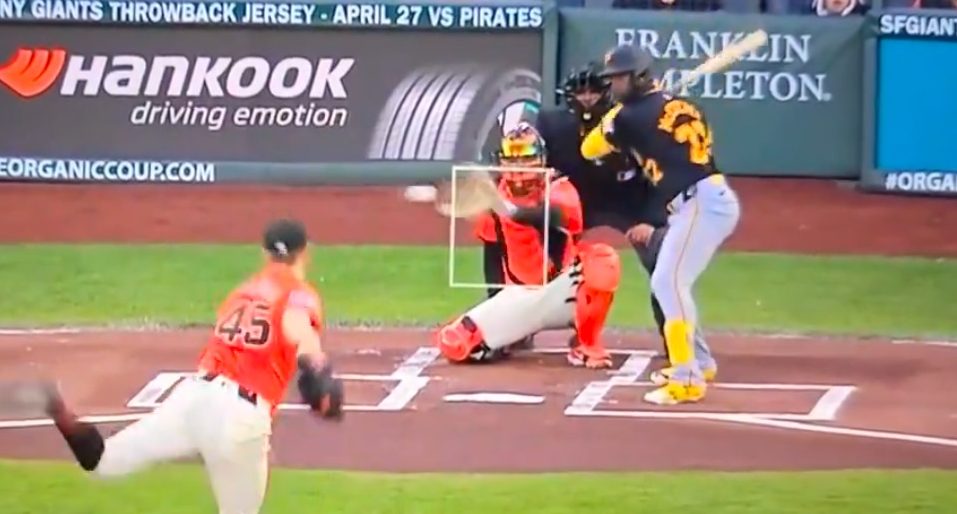Editor’s Note: Murjani Rawls is a ten-year culture editor, writer, and critic who has worked in places like DraftKings Network/Vox Media, The Root, and Substream Magazine. He is a member of the Critics Choice Association; his beats are music, television, film, pop culture, and sports. You can find him at the gym or the Trader Joe’s Hummus aisle when he’s not writing.
The adage often goes that greatness comes with a cost, but what are you willing to pay to reach the top of the mountain? What if that perceived success and the pursuit of blood, sweat, and tears is more of an inherited struggle than a natural one? It’s one thing to have to deal with the pains and weights of your own expectations, but another to take on those of a prior generation. The Iron Claw starts through a black-and-white filter as Fritz Von Erich (Holt McCallany) terrorizes an opponent with his famous hold to an enormous crowd that hates him (the much-desired reaction of any “heel” wrestler).
The intensity Fritz commands inside the ring follows him on the outside. The Von Erichs are one of the most beloved families in wrestling history. They were a dynasty and the pride of Texas at the height of World Class Championship Wrestling. However, you would have never known this within Fritz’s state of mind. There’s an eerie undercurrent that runs throughout the film about a Von Erich family curse, and the real-life tragic story of five out of six children dying in various ways would lend to that way of thinking. Coincidences happen, but how does death strike one family so hard without feeling it’s singling you out? Durkin finds a way to incorporate as many stories as possible that chronicle the love of brotherhood, the hardships of expectations, and how tragedy can whittle away at the most determined people. Wrestling match results are pre-determined, but life is something you can’t control as much as you would like to.
At the center of The Iron Claw is the pursuit of the NWA championship, but in reality, it’s more the pillar that eluded Fritz during his career. He decides to pursue it through his boys in the heyday of his wrestling promotion. We have Kevin (Zac Efron), David (Harris Dickinson), Kerry (Jeremy Allen White), and Mike (Stanley Simons). They all have their modicum of success, which the film points out. Kerry is on his way to competing in the Olympics, David is getting ready for his wrestling debut as a naturally gifted athlete and talker, and Mike has ambitions outside the ring as a musician. As you can guess, most of it is okay with Fritz — except for Mike, who he is the hardest on. Durkin establishes Fritz’s brand of parenting with an adversarial twinge. He’s not bashful about ranking his sons according to how much he loves them; much of the film speaks to that. The only thing Fritz can see is the world title, and if that means running through the gauntlet of his sons to get it, so be it.
Much of the film’s narrative is filtered through the eyes of Kevin, the NWA American Heavyweight champion at the time. Despite that, he became a conduit of his father’s hunger, looking to be the top guy in the company as the maximum of his worthiness to the world. However, that notion gets diluted in more in-depth ways. Kevin meets his soon-to-be wife Pam (Lily James) when she asks for his autograph. Awkward first interactions aside, Pam’s presence in his life teases what a world could be if it weren’t consumed with chasing down a goal that may not have been his to begin it. Their relationship uncovers the real reason he loves wrestling so much — it’s to have this activity with his brothers. Even if some jealousy exists with whom Fritz chooses to go after the title, that love never fades.
The Iron Claw’s grieving snowball of these unfortunate events never stops once it gets rolling. Before that, Durkin looks to show the four brothers in their element, enjoying each other’s company. There is time allotted to showing Mike’s interest in how the camera angles work during the broadcast despite being dismissed by Fritz. A glimpse of how he wanted to be a musician is also displayed as an almost melancholy way of foreshadowing what Mike’s future could have been without the Von Erich wrestling pressure. The scenes portraying Kevin, Kerry, and David in the ring feel ripped out of a WCCW broadcast in the 1980s. Cinematographer Mátyás Erdély recreated how The Sportatorium in Dallas, Texas, looked both inside and outside. The color saturation and the re-creation of the old-style wrestling broadcasts provide an air of authenticity. Camera angles are sometimes tight to the action in the ring to display how brutal these matches are and chronicle the physical toll they exert afterward.
Every actor brings something different to the embodiment of who their real-life figures are and were. Harris Dickinson channels the natural charisma that existed in David, where he was primed to be the best before his tragic death. There exists a non-stop motion with Jeremy Allen White’s portrayal of Kerry always being on the go and perhaps trying to outrun the grief that would eventually lead him to commit suicide. With Mike, Stanley Simons brings empathy to all the alpha male energy and perhaps shows there is a way out through other ventures. He eventually succumbs to the gravitational pull of his father’s expectations. The infamous press conference Mike had after he barely survived Toxic Shock Syndrome is re-created to show in another way how wrestling led to the downfall of this family.
At the center is Zac Efron, who brings physicality, a big brother protection mentality, and heaviness to his heart while trying to start a family with Kevin. You feel a certain apprehension as Kevin tries to check in on one of his brothers while spiraling toward their inevitable ends. In many ways, they are all they have. Fritz cannot show the love they need, and their mother, Doris (Maura Tierney), has a hands-off approach. Her marriage to Fritz also falls to his total devotion to this goal. Where he seeks to combat the harshness of life by trying to beat it into submission, Doris looks to religion for tranquility. Even that becomes shaken as she keeps losing the people she loves the most.
Richard Reed Parry’s score, full of synths, piano, and trumpets, feels ominous in some cases and momentous in others. They heighten the tension of big events and add a quiet ambiance to the more emotional scenes. With a story so rich in layers and people, it’s a triumph for Durkin to create a space that encompasses why the wrestling business is complicated and how one of its most prominent families can buckle under the weight of its loftiness. If you’re aware of this story, there’s one notable absence, and that’s the youngest brother, Chris, who died by suicide in 1991. His story of wanting to be like his brothers, but health complications limiting him in the ring, is a vital part of the Von Erich tale. With the two-hour-plus runtime, it may have been hard to include, given how heavy The Iron Claw is already.
Durkin’s film doesn’t exist to be inside a wrestling container. It’s a primer for those who aren’t aware of that world. It is also an overarching tale of sibling togetherness, how parental expectations warp our perceptions of what life can be, and the relentlessness of hard times and those who survive them.







